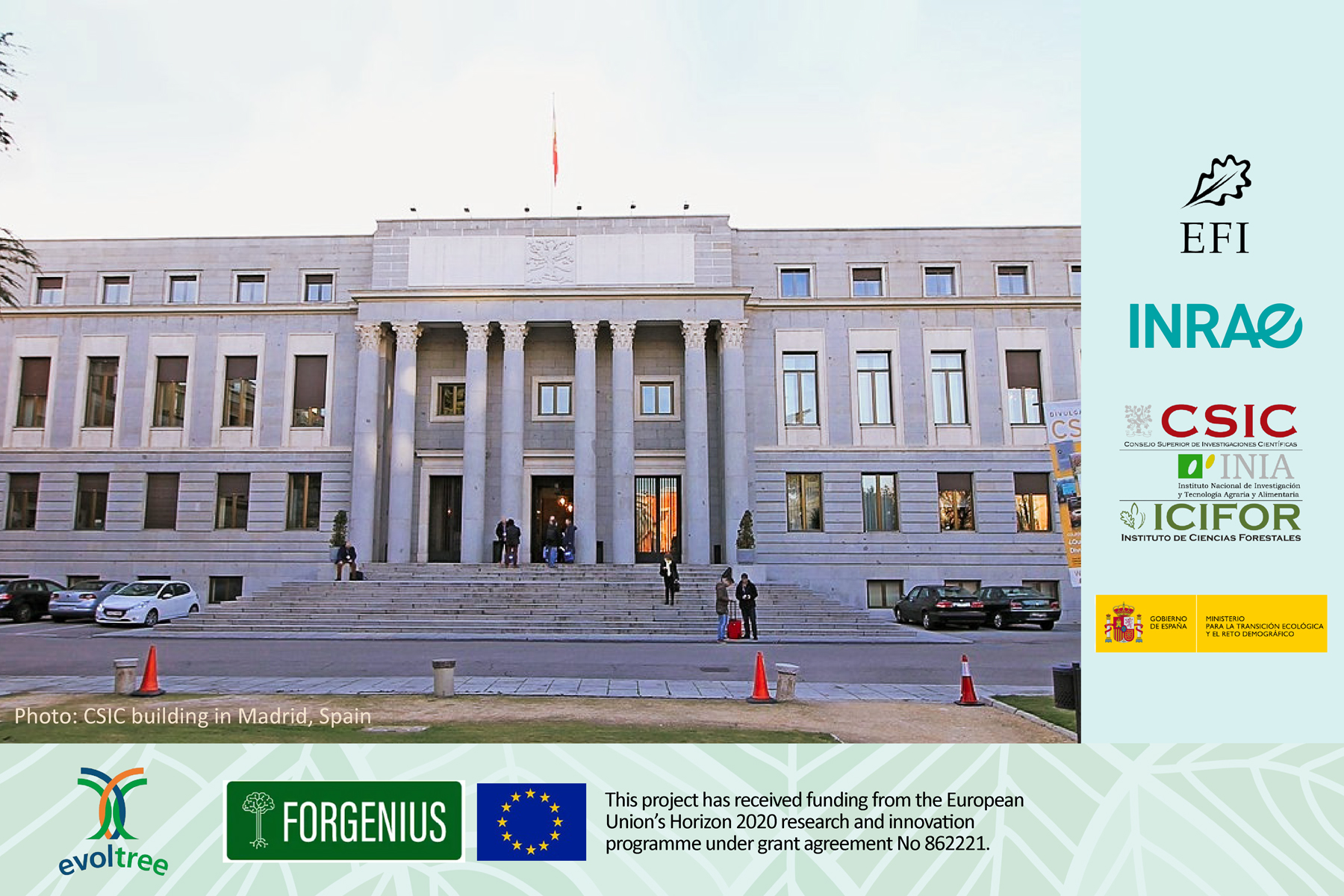Feedback by ANNIKA PERRY, CEH
5th International Workshop on the Genetics of Tree-Parasite Interactions, Orléans, France, 23-28 August 2015
There were more than 80 delegates at the 5th International workshop on the Genetics of Tree-Parasite Interactions with over 50 talks and 20 posters presented by researchers from across Europe, North and South America and Asia. The conference was organised into six main topics:
- Emerging or non-native pests and pathogens
- Resistance/ tolerance and virulence / aggressiveness mechanisms and their genetic determinants
- Host-parasite co-evolution and durable breeding
- Population genetics of parasites and their vectors
- New genomic tools and resources
- From genetics to innovative strategies
There was a discussion session one evening on the integration of host resistance for long term, large-scale management of tree-killing invasives. A tour of the local area was also organised on Wednesday where we visited managed forests, including Douglas-fir (Pseudotsuga menziesii), Corsican pine (Pinus nigra var laricio), poplar (Populus deltoides x Populus trichocarpa) and oaks (Quercus robur, Quercus petraea and Quercus pubescens). Additionally we were welcomed by mayors of Orléans, Sully sur Loire and Chateauneuf-sur-Loire and had the opportunity to visit the beautiful Chateauneuf-sur-Loire and Chambord castles.
The conference was a valuable opportunity to stimulate discussion between forest breeders, geneticists, entomologists, phytopathologists, forest managers and evolutionary biologists and to hear about ongoing work, progress and successes in a range of different pathosystems across the world.
My PhD research has focussed on Dothistroma needle blight (DNB) in native Scottish Scots pine. I therefore presented some results from an artificial inoculation experiment designed to establish how much adaptive variation in susceptibility to DNB is present in Scotland and whether these native forests are able to survive DNB. My results show that there is extensive genetic variation in susceptibility to DNB in native Scots pine, and that there is both high heritability and evolvability in this trait. However the long-term resilience of native Scots pine forests depends not only on their adaptive potential, but also on the severity of the threat and their ability to respond rapidly to it.
More information about the workshop: https://colloque.inra.fr/tree-parasite-interactions2015
Annika Perry (CEH) received a conference grant under the EVOLTREE Ten Grant Scheme for participating in the Genetics of Tree-Parasite Interactions Workshop in Orléans in 2015, where she presented, "Dothistroma needle blight (DNB) in native Scottish Scots pine”.



